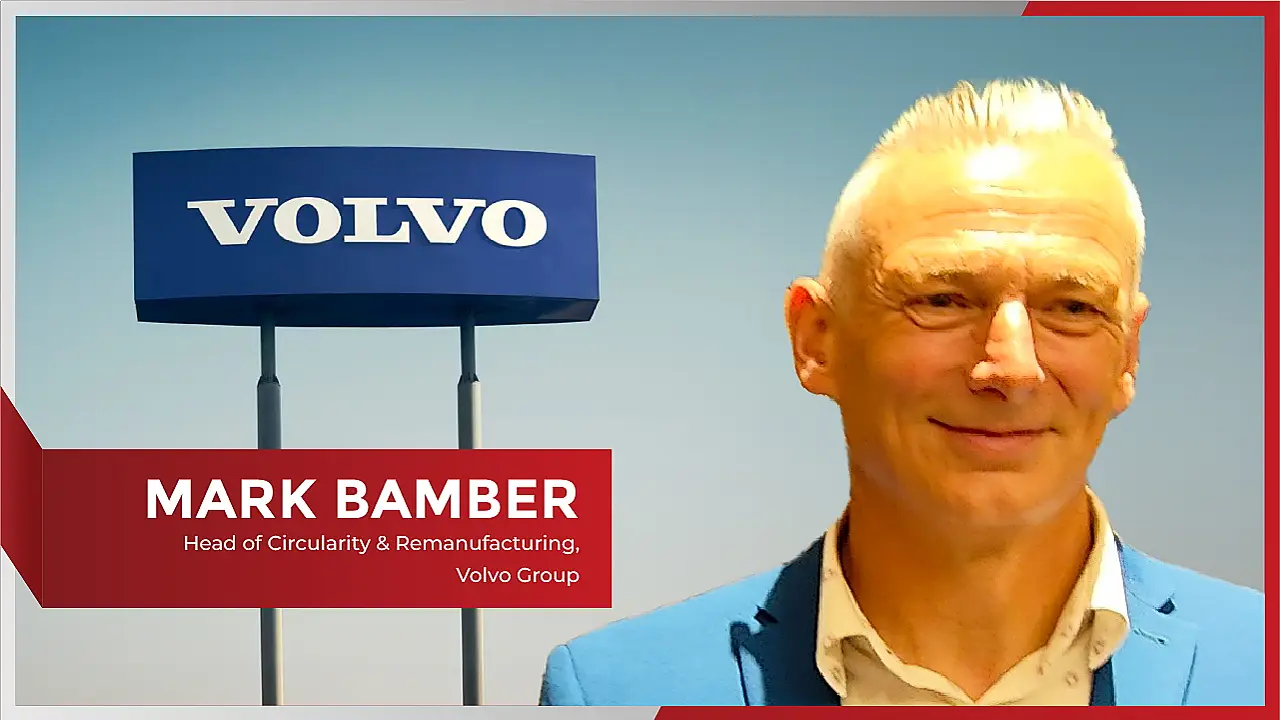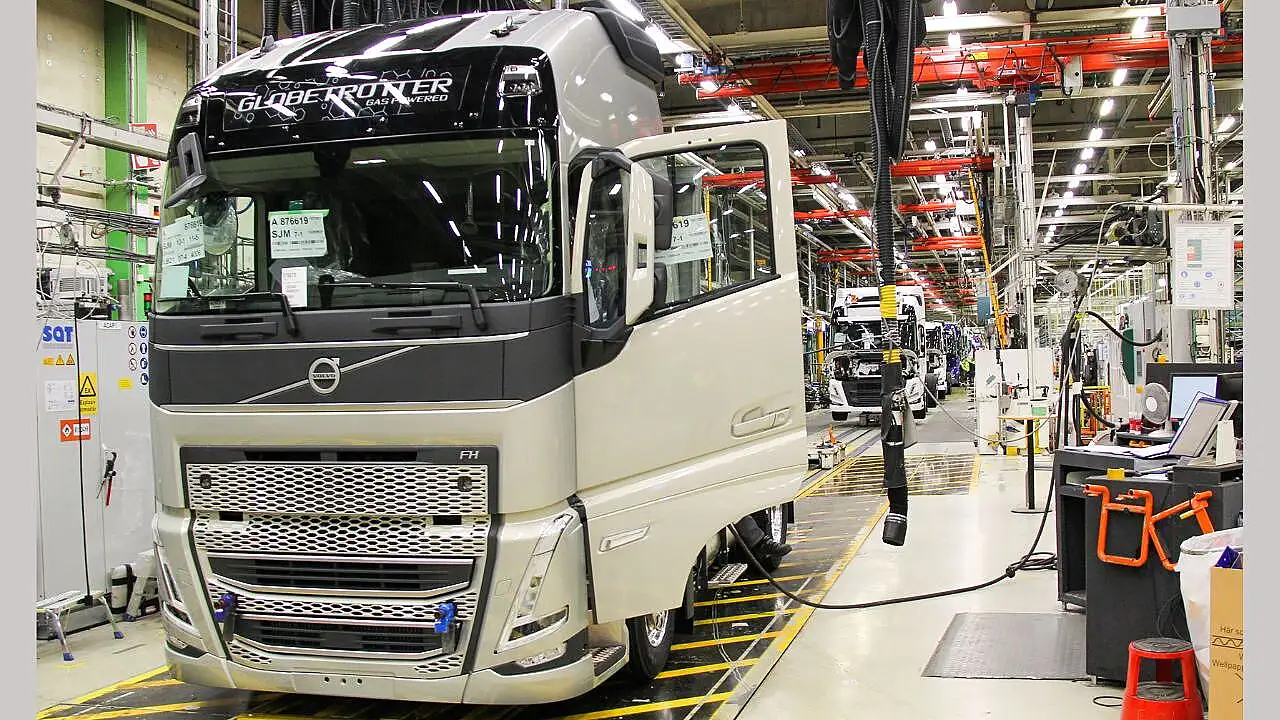
Mark Bamber is the Head of Circularity & Remanufacturing, Volvo Group. He is a seasoned expert in automotive Supplier Quality and Purchasing, with vast global experience across various commodities and regions. He has a proven track record of selecting, developing, and leading high-performing teams on an international scale.
Making suspension parts eco-friendly presents significant challenges. How does the Volvo Sourcing Team support innovation in eco-friendly suspension materials?
Before any sourcing decision, we always measure our CO2 impact, and it is now one of the key sourcing selection criteria. We are also collaborating closely with our supply chain partners to optimize design and incorporate more fossil-free materials, enhance circularity, and increase the use of recycled and recyclable materials in our vehicles.
How does Volvo Group support Tier-1 suppliers in improving their manufacturing processes to be eco-friendly?
We perform regular audits and we also run a supplier development workshop to work on efficiency led by Supplier Development Engineers.
We also have several initiatives such as the Volvo Group Summit where we invite our supply chain partners to make them feel inspired. External speakers are also invited for these summits.
All buyers within Group Trucks Purchasing are well-informed and knowledgeable about sustainability, and they are equipped to provide support in this area. Additionally, several expert support functions within Purchasing offer valuable perspectives and innovative ideas.
What challenges do you face in developing and sourcing lightweight materials like composites and aluminium, given their cost, manufacturing difficulty, and durability concerns?
While aluminum is a lighter material that offers weight-saving benefits, it is also a significant CO2 hotspot. To mitigate this, the use of fossil-free fuels can be a game changer. The R&D function plays a crucial role in finding the right balance and selecting materials that maximise these benefits. It's certainly a challenge, but when building our business case, we always consider the total cost of ownership (TCO) first. If there is a potential cost impact, it's important to strike the right balance. For example, load capacity is one of our key challenges, and weight reduction plays a vital role in improving it.

How do you balance between Performance versus Sustainability?
It’s very important to set the right target at early phase and make sure that our product is responding to our quality standard. The challenge is to find again a good balance between keeping the good performance and fulfill our sustainability ambitions. Many supply partners are currently developing or testing new materials which I believe will be able to respond to both performance and sustainability.
How do you ensure adherence to strict timelines when developing sustainable technologies and materials, given the challenges of research, investment, and compatibility with existing systems?
The best is to have regular and transparent dialogue with our Supply Chain partner. The whole of the Volvo Group is on this journey too, this is not a purchasing driven activity. All parts of the company are working together in a highly cross functional way to find the right balance by using the QDCFR-TSR approach. Quality, Delivery, Cost, Feature, Technology, Sustainability & Risk.
What alternative options exist to reduce the environmental impact of rubber parts in steering linkages and tie rods, given the reliance on natural or petroleum-based rubber?
That's true, but the ongoing work in this area, combined with Volvo's cross-functional approach, puts us in a strong position to identify the most optimal materials. It's also essential to engage our supply partners, who bring valuable expertise, especially in material selection.
Rubber production commonly uses additives like accelerators, plasticisers, and stabilisers, many of which are not eco-friendly, and alternatives are limited. How do you approach finding suitable substitutes?
We are aware that many of our rubber supply partners are encountering this challenge, and some have already collaborated with additive companies to find solutions.
How do you balance durability and biodegradability in rubber parts without compromising their function?
This is part of our circularity programme. We have developed a concept called the R-Framework, which we are now implementing in collaboration with our supply chain partners.
What percentage of Volvo Truck Group's total suppliers have transitioned to being fossil-free?
Not sure if we can respond to this question as numbers are constantly increasing. We find that the message is now beginning to have an impact and many of our supply partners are investigating or have moved to fossil-free solutions. We have around 10K supply partners all at various stages of maturity and this is not an overnight transition but is recognised as a critical transition if we are to have a real impact on GHG emissions.
Could you share your initiatives in training Tier-1 companies to better support their suppliers throughout the value chain?
CO2 AI is the tool used by Volvo Group Purchasing to measure supply chain emissions (cradle to gate). CO2 AI offers a panel of functionalities all centered around measuring Volvo Group Purchasing's carbon footprint as well as tracking progress towards our decarbonisation targets. As previously mentioned, we have various support roles and experts available to assist our supply partners throughout this journey. With a committed approach from our partners, we can help accelerate their progress and enhance the impact of reducing greenhouse gas emissions.
Also Read:
Rane, Madras Engineering To Supply Fossil-Free Parts For Volvo Group Truck